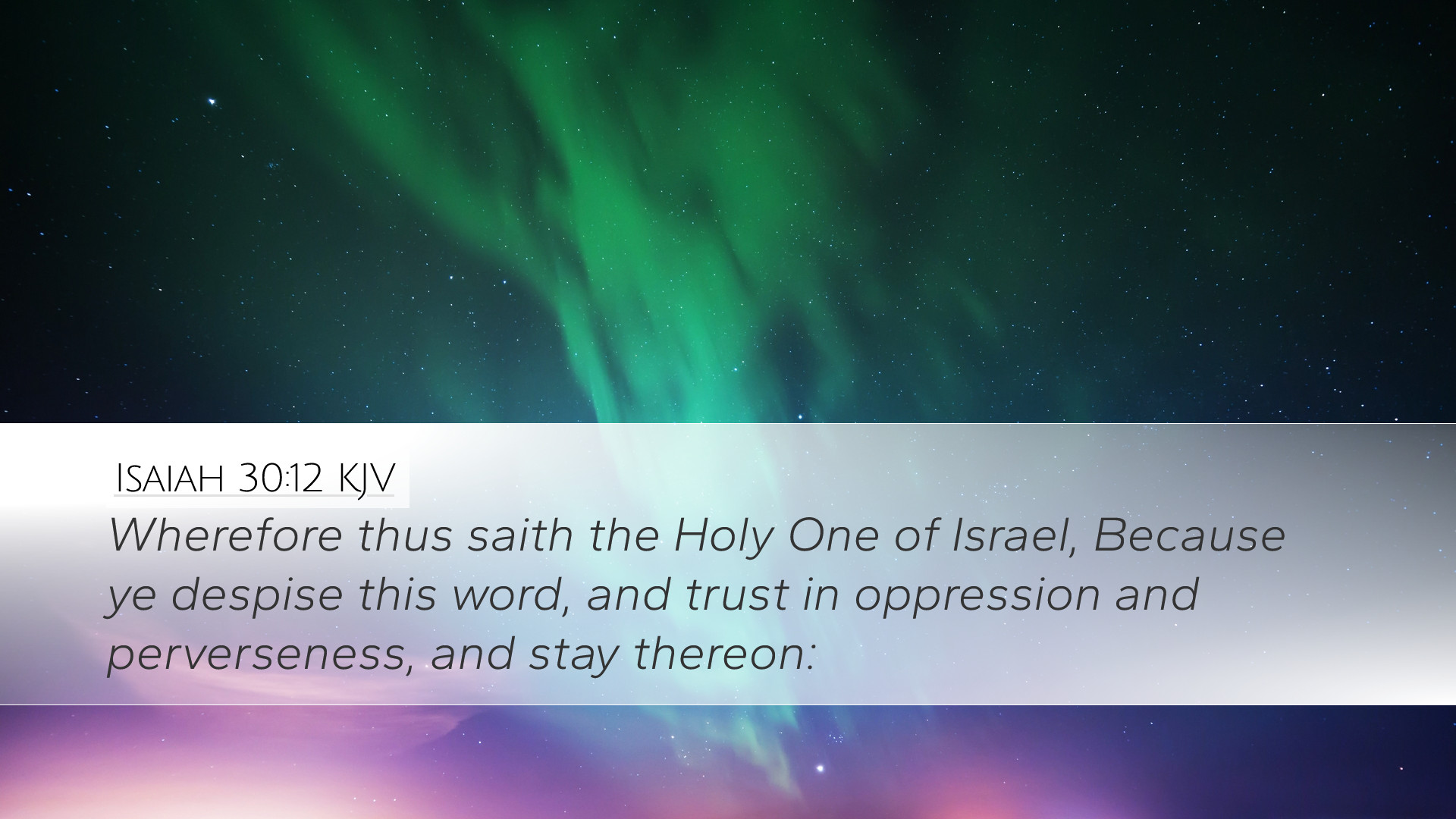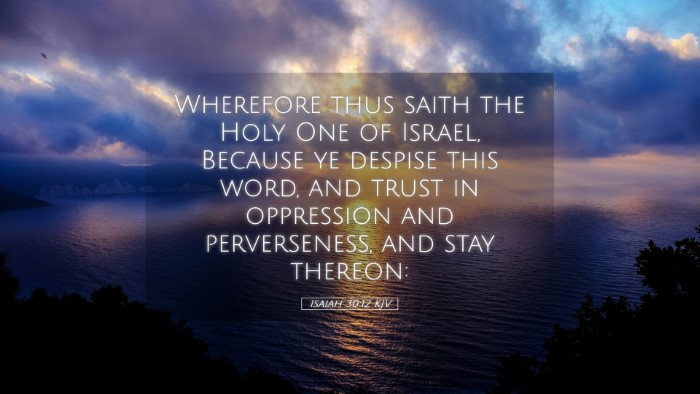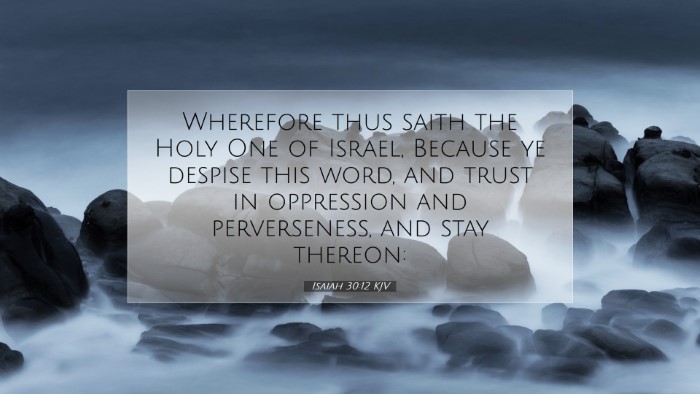Commentary on Isaiah 30:12
Isaiah 30:12 reads: "Wherefore thus saith the Holy One of Israel, Because ye despise this word, and trust in oppression and perverseness, and stay thereon." In this verse, the prophet Isaiah conveys a critical message from God regarding the attitudes and actions of His people. This commentary consolidates insights from several public domain sources to offer a comprehensive understanding of its theological and practical implications.
Contextual Overview
The Book of Isaiah is a prophetic text that addresses the themes of judgment, restoration, and divine promise. Chapter 30 specifically addresses Judah's reliance on Egypt for military assistance rather than turning to God. In the preceding verses, God expresses disappointment at their waywardness and reliance on human strength instead of divine guidance. Isaiah 30:12 thus serves as an articulation of divine rebuke but also highlights the consequences of misplaced trust.
Commentary Insights
Historical Context
According to Matthew Henry, the background of this passage lies in the historical relationship between Judah and Egypt. The people of Judah had faced imminent military threats and, rather than repenting and seeking God, they sought aid from a foreign power (Egypt) that symbolized oppression. Their despisal of God's Word illustrates a broader theme of spiritual rebellion prevalent among the Israelites throughout their history.
The Nature of Rejection
Albert Barnes points out that to "despise this word" signifies a conscious decision to disregard divine instruction. This rejection is rooted in distrust and a desire for immediate security over long-term spiritual fidelity. The term "word" refers to the prophetic revelation God has provided, which calls for both faith and action. This rejection implies both a neglect of God's voice and a preference for the deceptive comforts of the world, characterized by "oppression" and "perverseness."
Spiritual Implications
Adam Clarke elaborates on the consequences of trusting in "oppression and perverseness." The passage emphasizes that turning away from God's guidance leads to spiritual degradation. Such reliance creates a false sense of security that ultimately results in suffering and judgment. Clarke further notes that the mention of “the Holy One of Israel” underscores God's holiness and the expectation that His people pursue righteousness.
Theological Reflections
- The Holiness of God: The phrase “Holy One of Israel” evokes the need for reverence and fidelity to God's nature. God precisely defines holiness, and His people are called to reflect this attribute in their lives.
- The Consequences of Distrust: Rejecting God’s word often leads to tangible negative outcomes. This text serves as a reminder for contemporary believers about the dangers of choosing worldly solutions in place of divine wisdom.
- Call for Repentance: God's message through Isaiah serves as a call to repentance. Trusting in human systems rather than divine promises leads to spiritual poverty and bondage.
Applications for Contemporary Believers
This passage is particularly relevant for pastors, students, and theologians today. Here are several applications gleaned from Isaiah 30:12:
- Discernment in Decision Making: Believers should cultivate a dependence on God’s guidance through scripture and prayer rather than relying on immediate human resources or security.
- Value of Prophetic Voice: The significance of heeding God’s word in the context of contemporary spiritual discernment cannot be overstated. Understanding and applying Biblical teachings remain essential for spiritual growth.
- Holiness in Practice: Acknowledging God’s holiness requires a commitment to ethical living and faithfulness in all aspects of life. Believers are challenged to embody the message of the Gospel, reflecting God’s character to the world.
Conclusion
Isaiah 30:12 stands as a powerful reminder of the necessity of leaning upon God's understanding and wisdom rather than our own understanding. Through the reflections of Matthew Henry, Albert Barnes, and Adam Clarke, we are taught the importance of valuing God’s word, recognizing the dangers of misplaced trust, and the profound call to live out our faith with integrity and dependence on the Holy One of Israel. May this passage inspire a deeper commitment to God’s way as we navigate the complexities of life.


